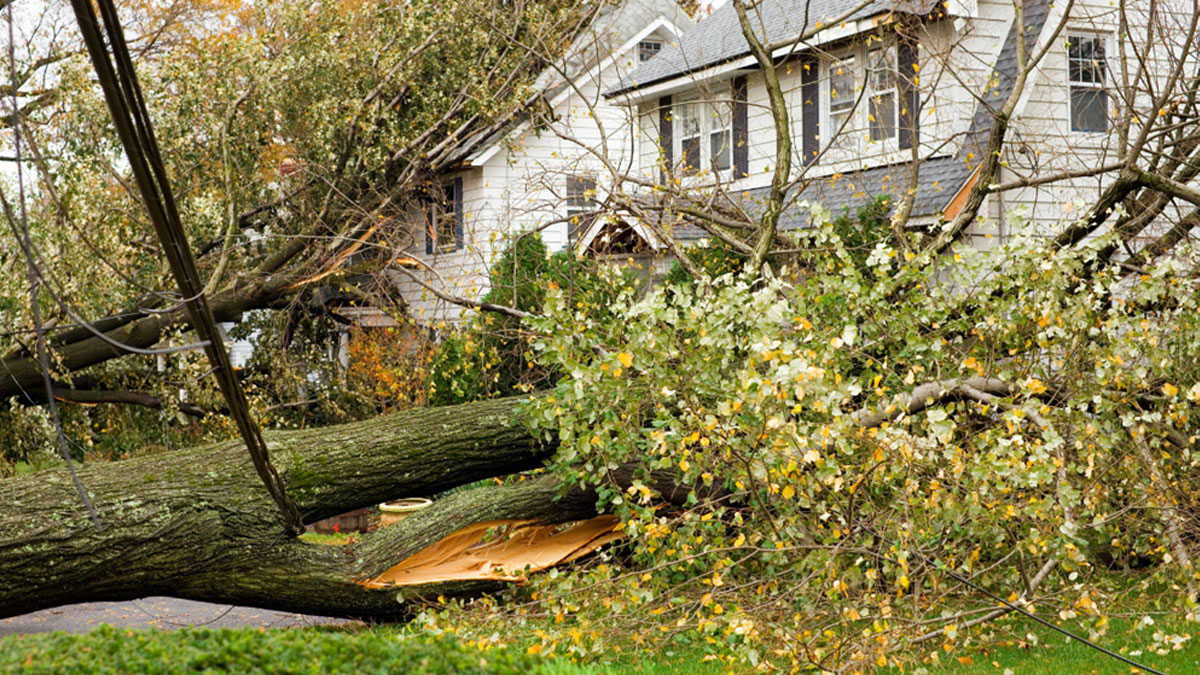
Power outages can be caused by many things… severe weather, trees interfering with power lines, car accidents knocking out critical infrastructure, sudden technical faults. We know this, and yet many of us are still caught off guard when a power outage actually occurs.
For example, did you know that in most power outages, you can still use your gas stovetop for cooking?
Being prepared for a power outage can help you stay safe and have a less stressful time when it happens. Below, we cover how to prepare for power outages, what to do during one, and best practices for after a power outage…

How to prepare for a power outage
With mobile phones doing just about everything these days, you’ll want to ensure your mobile phone has plenty of charge and all your essential contacts are saved - doctors, local council, electricity and gas retailers (including our Gas Supply Faults hotline on 1800 898 220). Also consider investing in a power bank to keep your phone full of charge.
Store essential supplies in a convenient place you’ll remember. These include:
• torches
• candles
• matches (or butane lighter) for lighting your gas stove and candles
• first aid kit
• printed list of key contacts in case your phone runs out of battery
• plenty of blankets and sleeping bags for warmth
• cash
• printed copies of important documents
• battery powered radio

First, check if your neighbours have power. If so, it could be that a safety switch has tripped on your powerboard, or a similar localised problem. If not, perhaps pay them a visit to make sure they’re okay. This goes for any other neighbours you may have, especially those who may need a bit of extra assistance.
To report a power outage, contact your electricity distributor. Often, you can find this number on a recent electricity bill. We have listed some other useful contacts at the end of this article. And if you have one, a battery powered radio can be useful to stay up to date with the news.
One of the great things about natural gas is that, if your home is affected by a blackout, you can still cook a meal and boil water.
If you experience a long power outage, it is important to consider the food in your fridge and freezer. Try to only open your fridge and freezer doors as needed to retain its cool temperature for longer.
If you don’t have a gas cooktop but have a gas barbecue, you can always get creative with BBQing meals! (Just make sure not to use your barbecue inside.)
Please don’t use your gas stovetop/oven for heating, and do ensure your kitchen is well ventilated (with an open door or window) when cooking given the electric exhaust fan won’t be operational.

Best practices after a power outage
When power does return to your home, the operation of certain appliances may be altered…
Your continuous flow hot water system should need no attention (unless it has an electrical component such as a remote temperature controller which might need resetting). Ducted gas heating should reset automatically.
Even if your oven runs on natural gas, the clock component will be electric so it will probably need resetting to the correct time. This will likely be the case for other gas appliances with electric components too.
Finally, if you have suffered a power outage due to damage caused by a flood or fire, we recommend you use a licensed tradesperson for all gas or electric repair work.
Power outages aren’t fun. But being prepared will stand you in good stead. Knowing that you’ll likely be able to enjoy natural gas in your home should help your peace of mind too.
After all, many Australian households on our natural gas network rarely experience an unplanned outage, making gas much more dependable than grid electricity.

Some helpful contacts:
Vic Emergency Hotline on 1800 226 226 (or visit the VicEmergency app or website )
NSW Emergency Services 132 500 (or visit Emergency | NSW Government)
QLD Emergency Services 132 500 (or visit Queensland Fire and Emergency Services )
SA Emergency Services 132 500 (or visit SASES )
WA Emergency Services 132 500 (or visit Prepare - Emergency WA Warnings & Incidents )
TAS Emergency Services 132 500 (or visit Tasmania State Emergency Service)
NT Emergency Services 132 500 (or visit Emergency Service | NT Police, Fire & Emergency Services)
For any gas related emergency, please call 1800 GAS LEAK (1800 427 532) or visit Gas Outages, Leaks & Gas Emergencies




